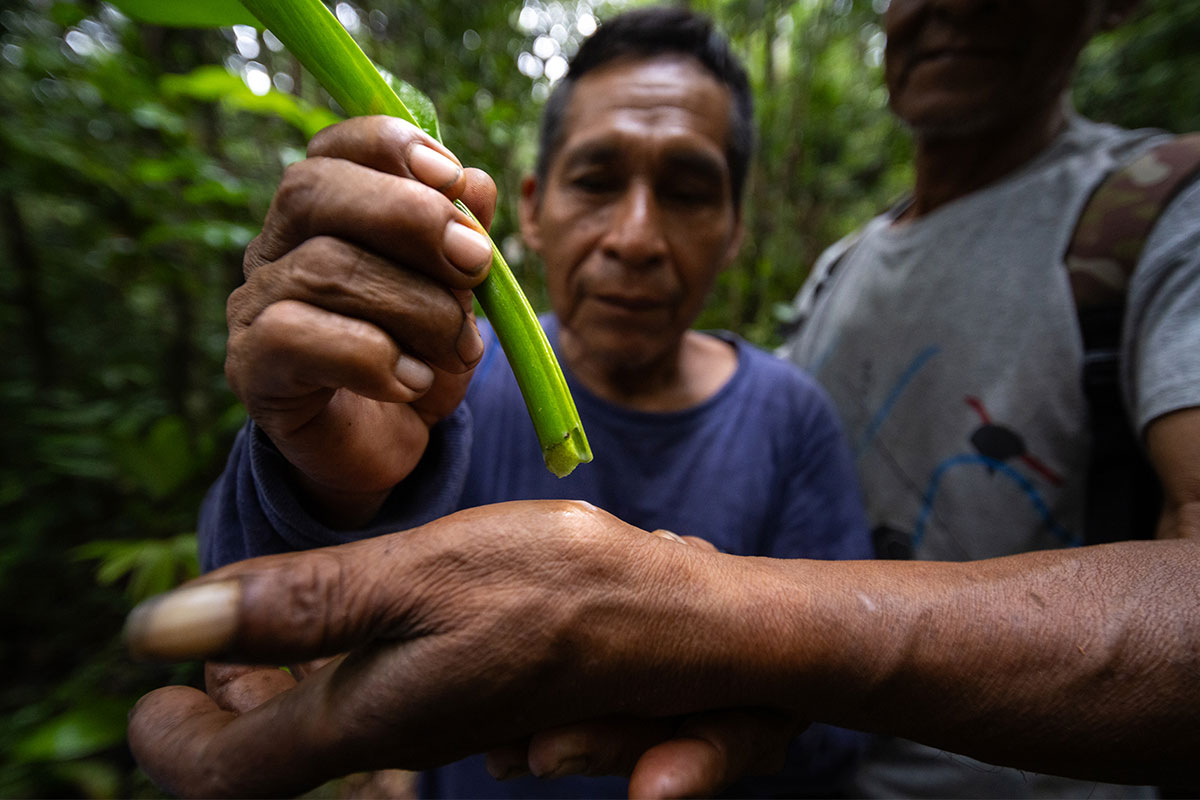Joint efforts help strengthen the protection of traditional knowledge in Peru

Collective or traditional knowledge refers to the wisdom, innovations, and practices held by Indigenous or rural communities since time immemorial, passed down from generation to generation.
This knowledge can take many forms and may be expressed materially—such as through objects or products, technologies, or foods—but it can also be intangible, such as rituals, beliefs, customs, ceremonies, among others.
Among traditional knowledge are those associated with biological diversity; that is, knowledge related to the use of plants and animals for various purposes, especially in the field of medicine.
Due to its importance, this knowledge needs not only to be preserved but also protected, to prevent companies or individuals outside these communities from profiting from it without proper authorization.
In Peru, the entity responsible for protecting this knowledge is the National Institute for the Defense of Competition and Protection of Intellectual Property (Indecopi), which has carried out this role since 2002, the year Law 27811 was enacted. This law establishes the Protection Regime for the Collective Knowledge of Indigenous Peoples.
To ensure this protection, communities must register their knowledge, and Indecopi, with the support of various partners—including the Peruvian Society for Environmental Law (SPDA)—has been able to safeguard this knowledge. In the region of Madre de Dios alone, for example, 494 instances of collective knowledge have already been registered.
 Directora ejecutiva de la SPDA, Isabel Calle, y Alberto Villanueva, presidente de Indecopi, firmaron convenio el 30 de enero de 2025. Foto: Jaime Tranca / SPDA
Directora ejecutiva de la SPDA, Isabel Calle, y Alberto Villanueva, presidente de Indecopi, firmaron convenio el 30 de enero de 2025. Foto: Jaime Tranca / SPDA
To ensure the continuation of this important work, on January 29, Indecopi and the SPDA signed an interinstitutional cooperation agreement with the aim of working together to continue protecting the ancestral knowledge of Indigenous peoples related to biological resources.
Both institutions committed to carrying out a variety of activities such as technical assistance, workshops, support and guidance for communities, publication of informational materials, and more, to facilitate the registration process.
During the signing ceremony, Alberto Villanueva, President of Indecopi, emphasized the importance of combining efforts on this issue and highlighted the joint work the institution has carried out with SPDA over the past two decades. “We want to formalize a long-standing relationship that has been very smooth and fruitful for Indecopi,” he stated.
Isabel Calle, Executive Director of SPDA, noted that Peru is a pioneer in the protection of Indigenous ancestral knowledge, and emphasized that the organization she leads has been working with Indecopi on the protection of collective knowledge since 2005, in collaboration with various entities such as the Ministry of the Environment (Minam), Ministry of Culture (Mincul), Conap, Aidesep, Fenamad, Asociación Andes de Cusco, among others.
“The idea behind this agreement is to keep working, to continue supporting communities in the registration process, together with other organizations. The next step is to expand into more regions to achieve this goal,” she concluded.